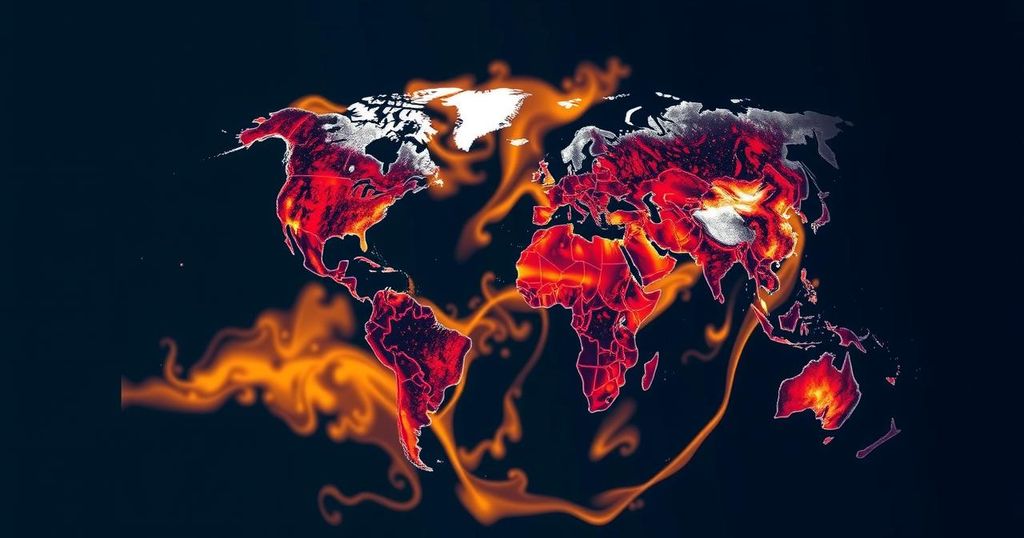A UN report warns that if greater actions are not taken, global temperatures could rise by 3.1 degrees Celsius by 2100, significantly higher than the 1.5 degrees Celsius limit established in the 2015 Paris Agreement. Current emissions are at an all-time high, and progress towards climate targets, particularly among G20 nations, has stagnated. The report advocates for a collective reduction of emissions by 42% by 2030 for any hope of limiting warming.
The recently released annual Emissions Gap report by the United Nations highlights a pressing warning regarding global climate change, stating that without significant and immediate action, the world is on track to experience an alarming rise in temperatures of up to 3.1 degrees Celsius (5.6 degrees Fahrenheit) above pre-industrial levels by the year 2100. This forecast is more than double the temperature increase that countries agreed to limit to 1.5 degrees Celsius (2.7 degrees Fahrenheit) under the Paris Agreement, established in 2015. According to the report, which evaluates nations’ commitments to curbing greenhouse gas emissions against what is required to avert catastrophic climate impacts, global emissions surged to a record high of 57.1 gigatonnes of carbon dioxide equivalent between 2022 and 2023, an increase of 1.3%. The report reveals that existing pledges from countries would result in a temperature rise ranging between 2.6 to 2.8 degrees Celsius by the century’s end if no additional actions are taken. Despite the urgency of the situation, progress toward meeting climate targets set for 2030 has been stagnant, particularly among G20 nations. As of now, global temperatures have already increased by approximately 1.3 degrees Celsius (2.3 degrees Fahrenheit). With the annual United Nations climate summit (COP29) scheduled to take place next month in Azerbaijan, nations aim to refine their strategies for emission reductions. The report advocates for a collective commitment to decrease greenhouse gas emissions by 42% by 2030 and achieving a 57% reduction by 2035 to maintain the possibility of limiting warming to 1.5 degrees Celsius. Inger Andersen, the Executive Director of the United Nations Environment Programme, has underscored the importance of utilizing the upcoming Baku discussions to bolster commitments in the Nationally Determined Contributions (NDCs). Emphasizing the gravity of the moment, she stated, “Every fraction of a degree avoided counts.”
The topic of climate change and its resultant global warming trends has become a foremost concern for scientists, policymakers, and activists alike. This specific UN report underscores the stark reality of current global warming trajectories in comparison to the goals set forth in international agreements like the Paris Agreement. The annual Emissions Gap report serves to assess the effectiveness of measures taken by various countries in their efforts to combat climate change. It highlights the growing emissions from greenhouse gases that contribute to rising temperatures, thereby calling into question the adequacy of existing climate policies and urging for more aggressive actions.
In summary, the United Nations emphatically warns that without drastic measures to reduce greenhouse gas emissions, the planet is on course for a worrying temperature increase of approximately 3.1 degrees Celsius by 2100. This forecast significantly surpasses the agreed-upon target of 1.5 degrees Celsius, underscoring the need for immediate and substantial action from global leaders. The upcoming COP29 summit is critical for nations to realign their climate strategies to avoid disastrous consequences. As experts emphasize, every effort counts in the battle against climate change.
Original Source: www.theweathernetwork.com






